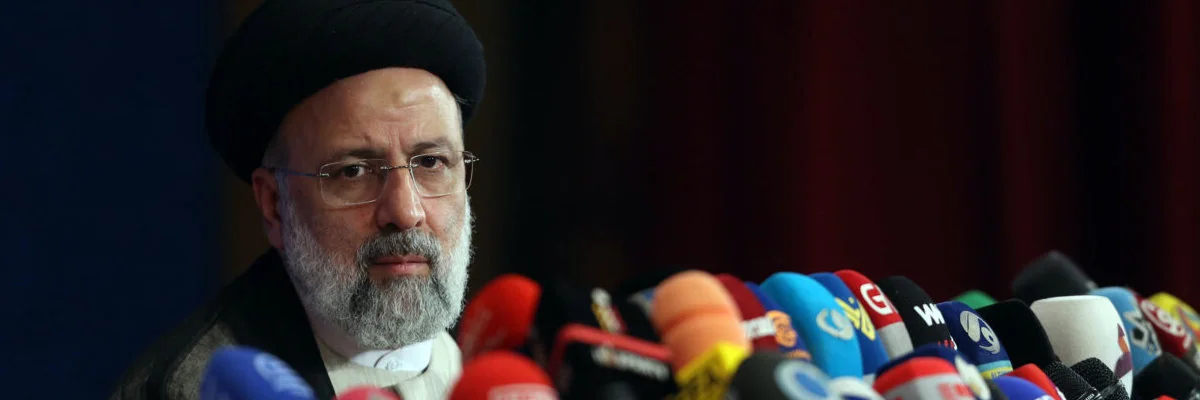As Iran Faces Domestic Crises, Raisi Must Seek Stability in Foreign Policy
This article was originally published in Persian in the Iranian newspaper Etemad.
The Raisi administration faces numerous challenges. In the domestic sphere, the resurgence of COVID-19, the limping economy, and the spectre of a climate emergency have tested the patience and resilience of the Iranian public, who increasingly doubt the ability of the government to respond to the many crises facing the country. The Raisi administration must make these internal crises its foremost priorities.
But in order to do so, the administration must ensure that Iran’s foreign policy serves to minimise external challenges, so that the capacity of the government can be focused where the needs are most acute. In this regard, the Raisi administration is not unique—governments throughout the region and the world are responding to unprecedented internal crises. The regional and global situation therefore requires a foreign policy doctrine that is rooted in pragmatism and multilateralism. For the Raisi administration, such a doctrine should focus on three priorities.
First, Iranian leaders have rightly pointed out that the sanctions relief provided by the P5+1 following the implementation of the JCPOA was imperfect, lacking the necessary “verification.” While trade did rebound, Iran’s reintegration into the global economy was impeded by the hesitance of banks to engage in Iran-related transactions. By the time President Donald Trump withdrew from the JCPOA in May 2018, reimposing secondary sanctions, little foreign direct investment had materialised, and the most important energy and infrastructure projects had yet to break ground. For this reason some Iranian leaders, consider the JCPOA fundamentally flawed. But the Raisi administration must recognise that the only means for addressing issues related sanctions relief is to remain a party to the nuclear deal, ensuring the U.S. renters the agreement, and then demanding greater attention to issues of implementation from the P5+1. There were only 11 months between the implementation of the JCPOA and the election of Donald Trump—too short a time for many of the complex issues surrounding sanctions relief to be solved. Of course, arriving at solutions will also require economic reforms by Iran, such as full adoption of the FATF action plan. These reforms will also take time as they are carefully considered by Iranian lawmakers. Should the Raisi administration move swiftly and confidently to restore the JCPOA on the basis of mutual compliance, there will be at least three years under the Biden administration, and possibly seven years, in order to work with the P5+1 in a multilateral manner to ensure that the trade and investment promised under the JCPOA materialise, returning Iran’s economy to robust growth.
Second, President Raisi needs to expand Iran’s regional policy to more successfully include multilateral diplomacy with Central Asia. One of the most positive developments of the last year has been an upswing in regional diplomacy. Iran has resumed bilateral negotiations with Saudi Arabia and the United Arab Emirates. The recent initiative of Iraqi Prime Minister Mustafa al-Kadhimi to organise a regional summit in Baghdad is an excellent opportunity to build on this recent dialogue in a larger multilateral format. But there have also been important developments to Iran’s northeast, with a growing effort among the Central Asian states to address regional challenges through multilateral formats. Despite the shared interests over regional connectivity, economic development, and security, Iran has yet to participate in these formats in a serious way. The deteriorating situation in Afghanistan will in particular require coordination with Central Asian neighbours. Javad Zarif completed a tour of Central Asia earlier this year, showing the potential for high-level engagement. But the Raisi administration must develop a clearer strategy for multilateral engagement in Central Asia in parallel with its engagement with Arab neighbours, thereby completing a regional policy that encompasses all of West Asia.
Finally, for the sake of multilateral diplomacy, the Raisi administration must ensure that the Iranian public can access global digital and communications platforms. While the debate in Iran has largely considered it an internal issue, definitive filtering of cyberspace would negatively impact foreign policy in two ways. First, it is important consider that Iran’s most effective diplomats are its own people, who have an outsized impact on the global discourse through their presence on social media platforms. To deny Iranians access to these platforms would prevent Iranians from seeing themselves as global citizens, engaging in a global exchange of ideas, and participating in global commerce. Second, limiting access to cyberspace in the manner proposed would fundamentally change the perception of Iran in the international community, making it more difficult for Iran to engage as an equal and respected party in multilateral formats. In short, should Iran isolate itself in cyberspace it will isolate itself on the world stage.
Iranian has demonstrated remarkable resilience in a period when the country has been isolated and embattled. Because Iran’s strength will not be doubted, the Raisi administration should confidently pursue a foreign policy of pragmatism and multilateralism, ensuring that the country does face the many crises alone.
Photo: IRNA




